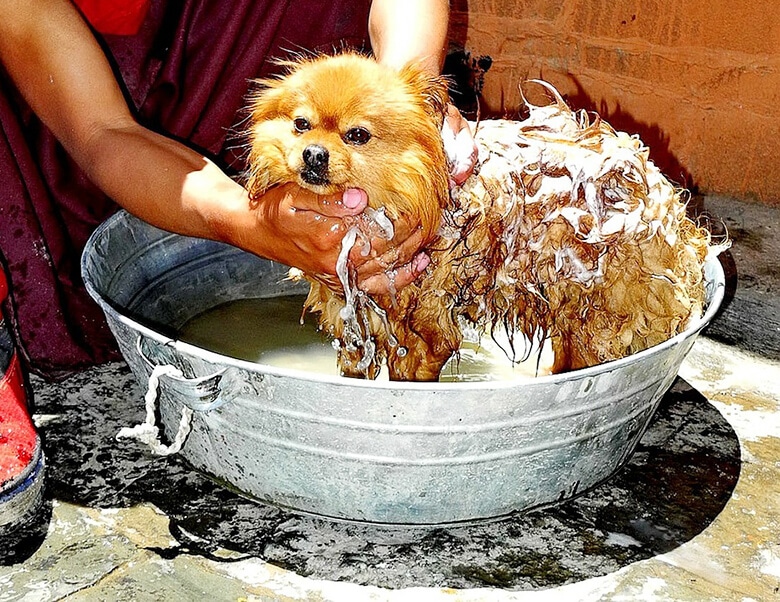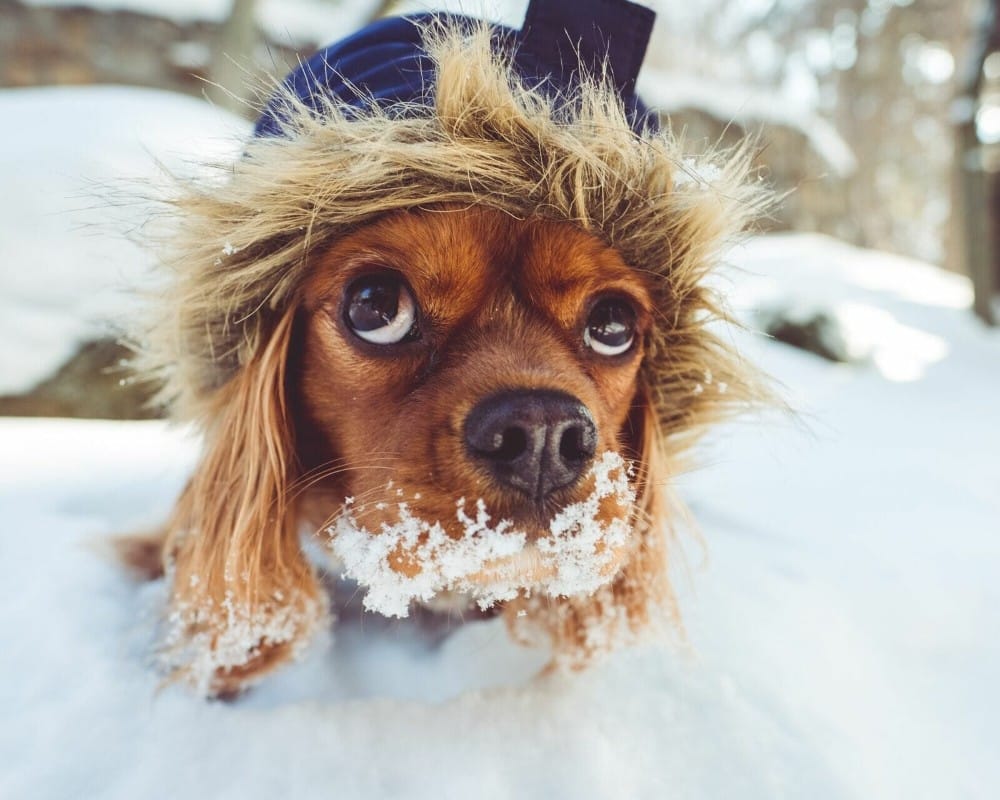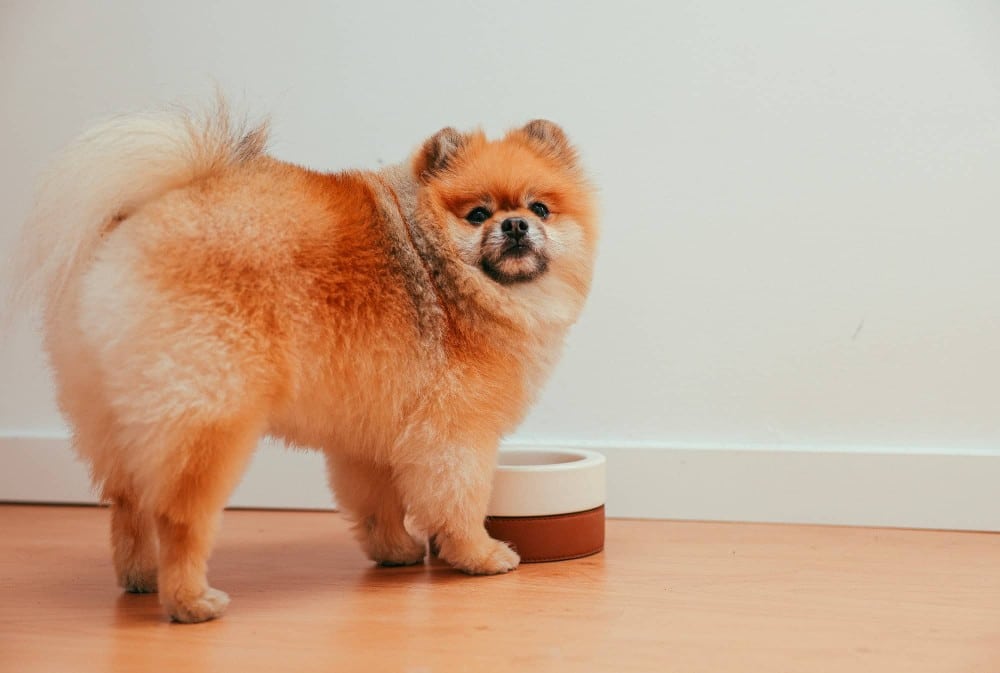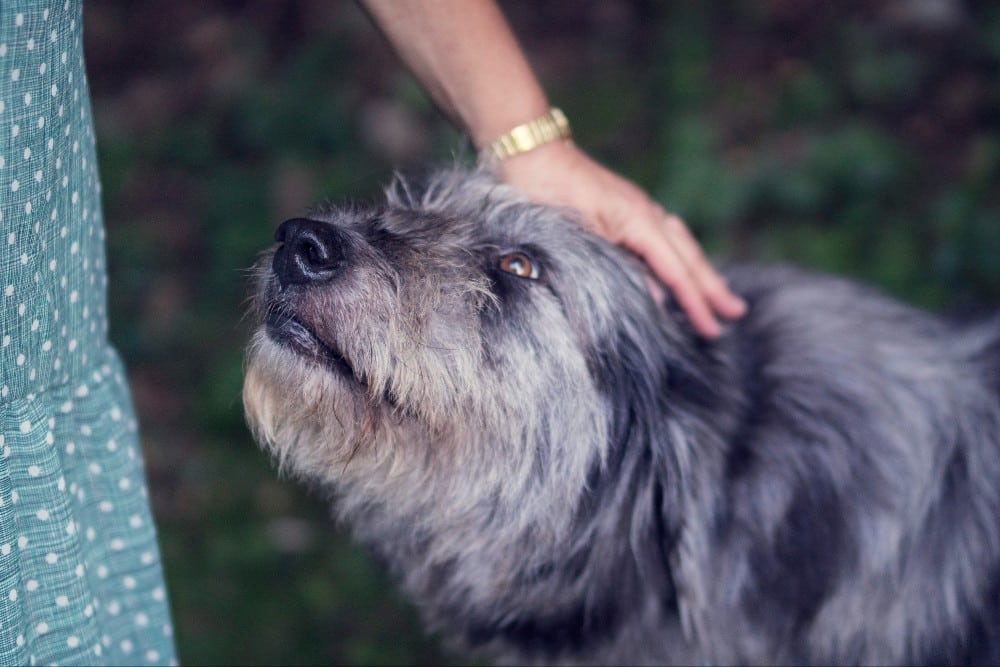Your dog went out for an adventure and tried to make friends with a skunk. The skunk had other ideas. It’s not uncommon in areas where skunks roam for a dog to get sprayed, so don’t panic.
But also don’t let your dog back in your house; the smell can linger indoors for up to a year. It can also remain on your dog’s skin and fur if not removed completely, so it’s essential to get “de-skunking” as soon as you can. Bring your dog to an outdoor area or an area away from your home like a garage – and get to work.
Check your dog for injuries.
Look for scratches or bites. If you see any wounds, your dog should be seen by a vet. (According to the American Veterinarian Medical Association, skunks represented 21 percent of the reported rabid animals cases in 2017. It’s important to get your dog vaccinated for rabies regularly.)
Related: The Best Cooling Vests and Bandanas to Keep Your Dog Comfortable in The Summer Heat
Skunks use their spray when they are threatened, and they can spray as far as 15 feet away; it is common for dogs to take a hit directly to the face.
Check their eyes first. If they’re red and irritated, flush the eyes immediately with cool water or use an eye wash solution. If it looks like your dog got sprayed directly in the eyes, and flushing the eyes has not given any relief, get your dog to a veterinarian immediately. Also rinse the nose and mouth with cool water.
Get prepared
You’ll need to wash your dog with something that can break down the oils in skunk spray in order to remove the odor. If you don’t have a commercial product on hand that removes the odor, you can make your own solution.
DIY De-Skunker
Put on some rubber gloves and mix together the below solution in a large bowl:
- 1 quart of 3-percent hydrogen peroxide (available at any pharmacy)
- 1/4 cup baking soda
- 1 teaspoon liquid dishwashing soap
Here are a few warnings:
- Use this mixture immediately.
- Do not store any leftover solution as it can explode.
- Do not get into your dog’s eyes.
- Don’t leave on too long as it can bleach the fur.
- Don’t use a hydrogen peroxide solution stronger than 3%
If DIY isn’t for you, these products are also an option:
- Well & Good De Skunk Shampoo: A natural, non-toxic shampoo that removes skunk odor.
- Thornell Skunk-Off Pet Shampoo: Neutralizes odors without irritation and can be used on people and fabrics.
- Skunk-Off Liquid Soaker: Bathe with a Skunk-Off shampoo first for best results, then apply, and allow pet to air dry.
- Nature’s Miracle® Skunk Odor Remover. Use before wetting the dog with water, wait 5 minutes, then shampoo. You can spray it on spots that still smell afterward, and let dog air-dry.
- Skout’s Honor Professional Strength Skunk Odor Eliminator: It’s non-toxic, biodegradable, environmentally friendly and free of harsh chemicals.
Wash your own clothes in a mixture of regular laundry detergent and ½ cup of baking soda.
Related: How to Protect Your Dog From Fleas, Ticks and Mosquitoes This Summer
Rinse and repeat
It’s common to smell skunk every time your dog gets wet for the next few months. In order to completely remove the smell, you are going to need to possibly bathe your dog several times.
Work the solution into your dog’s coat down to the skin. To use on the face, apply with a washcloth, and be very careful not to get it into the eyes. (You can also help protect the eyes by using lubricant drops like GenTeal Tears.)
Leave on for up to 20 minutes for the DIY solution, or follow the directions for the other shampoo options. After the mixture is thoroughly mixed into the coat, you should not be able to smell any skunk. If you can still smell it, there is still some skunk oil that isn’t covered. As soon as the odor is eliminated, rinse the mixture off completely.
You may have to repeat the process if you still smell skunk. Then use regular dog shampoo to rinse off the oil.
How to avoid a skunk run-in
If you live in an area that has skunks, you can cut down on possible encounters by learning about skunks’ behavior. Skunks are nocturnal, meaning they sleep during the day and typically come out to find food at dusk.
It may help to leave a light on in the backyard, and accompany your dog rather than just letting him out the backdoor. Consider adding outside solar lights in your backyard to keep the area lit all night and send the message to all skunks that it’s not a friendly habitat. Another deterrent is to schedule automatic sprinklers to go on throughout the night.
Lastly, remove the skunk buffet: take in any dog food and treats and cover garbage cans tightly. An investment in “critter-proof” trash cans will help keep the skunks away.
Related: Everything You Need to Know to Have a Happy and Safe Summer For You and Your Dog





















